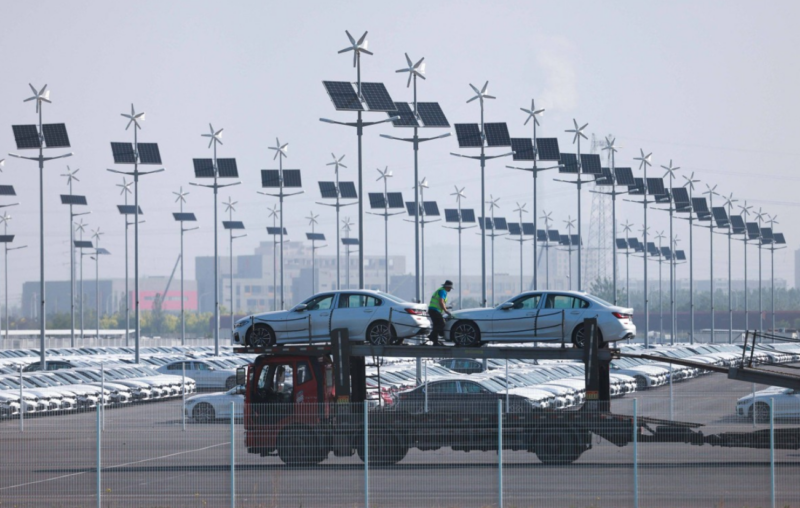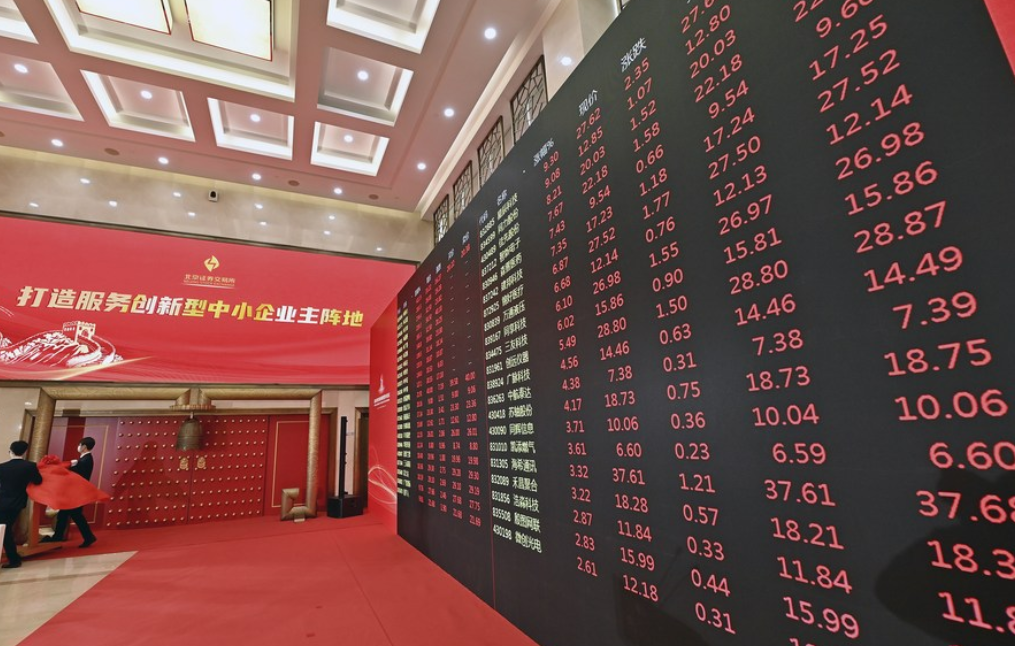As China rapidly becomes a world leader, the Western press has always tried to put the country’s economy in a bad light. This often involves highlighting the negative aspects of the Chinese economy. However, this vision generates a distorted perception of China’s real development. Besides, these opinion does not match with the reality of facts, which is often not covered by foreign media channels. For instance, in 2022, China could boast RMB 121 trillion worth of GDP, almost three times more than Japan. While, in the same year, the growth was only 0.7% less than the pre-pandemic times in 2019. Since the early 2000s, China has consistently been an attractive destination for foreign investors. They seek opportunities to explore its economy, attract new consumers, and establish themselves in its vast and diverse market.
Download our US consumer segmentation report

Despite the government restrictions, iPhone sales in China are skyrocketing
On September 11th 2023, the Chinese government adopted some policies against the use of Apple products, which consisted of banning iPhones among government officials and employees. Their aim was to enhance the sales of inland products rather than foreign ones. They also sought to reduce technological dependency on Western countries, especially the US. Despite the government’s partial ban on the company, Apple sales are rapidly increasing. Its smartphones, indeed, have become an indicator of social status that the middle and higher classes in China must have, just like many imported products such as cars. With more than 54.3 million units sold, the iPhone was already the best-selling smartphone in the Chinese market in 2022, followed by domestic brands such as Xiaomi and Oppo. As of September 2023, this trend is reaffirmed, with the sales of the new iPhone 15, which is completely crushing the competitors, registering more than 3 million models sold in one day. The smartphone was launched at the beginning of the month, with the possibility to preorder it on Alibaba and JD.com. However, the preorders for the upcoming phone were so many that these e-commerce platforms finished their stocks just one minute after the opening.
The biggest Starbucks’ investment outside the US is in China
At the beginning of September 2023, Starbucks was the protagonist of one of its biggest investments ever made outside the US. The company invested more than RMB 1.5 billion (USD 200 million) to fund its brand-new Chinese campus. Located in Kunshan, Jiangsu province, the project is called “Coffee Innovation Park” (CIP) and represents an opportunity for the brand to enhance its sustainability by reducing environmental impact and promoting sustainable coffee manufacturing.

The CIP is composed of many structures, such as a roasting centre, a retail point and an experience centre where consumers can be taught about all the processes behind a cup of Starbucks coffee. Plus, the American company wants to support the creation of a Chinese coffee farmers’ centre. In which not only can they share ideas and competencies, but also benefit from a complete supply chain located in China, from beans to actual coffee. The primary motivation behind this substantial investment is the vast potential that the Chinese market offers to Starbucks. The company intends to grow its existing retail presence within the country. Indeed, by 2025, the shops are expected to increase from the current 6500 units to 9000 units in more than 300 cities.
The car market isn’t holding it back: BMW and its multi-billionaire battery plant
After its first establishment in 2003, BMW has always been a big foreign competitor in the Chinese luxury car market, along with Mercedes and Volkswagen. In October 2022, the German automobile company made an announcement to expand its existing EV battery plant in Liaoning. This expansion involved an investment of over RMB 10 billion (USD 1.4 billion) to boost production capacity.

The plant was inaugurated in June 2022 and had a cost of more than RMB 15.8 billion (USD 2.2 billion). This huge investment allowed BWM to increase its annual vehicle production capacity to 830,000 units. One of the main reasons behind BMW’s brand-new industry is to keep up with Tesla, another foreign EV producer, and become a serious competitor in this market sector. Especially because, as of August 2023, the American vehicle manufacturer captured more than 13% of the total Chinese EV market share.
Singapore United Energy is investing in greener Chinese industries
In 2023, Singapore has been one of the countries which has invested the most in the Chinese economy. Throughout the year, indeed, the nation has funded the Research and Development programs in China for a total of RMB 26 billion (USD 3.6 billion). Its main investments concerned robotics, integrated circuits, and electric vehicles. In the EV market, one company, Geely, has notably captured the attention of investors. Founded in 1986 as a refrigerator parts manufacturer, Geely has slowly become a major protagonist in the Chinese car market, and now the company is specializing in remote-driving vehicles. Following these funds frenzy, one of Geely’s biggest investors was a Singaporean oil and energy producer called “United Green Energy”. At the end of August 2023, the oil producer, along with other investment companies, managed to fund the Chinese company with more than RMB 4.3 billion (USD 600 million).
The new frontier of competitive gaming: Savvy Games and its multi-millionaire investment in the Chinese e-sport market
The e-sports market is another sector which is attracting loads of investors in China. In February 2023, the Saudi-Arabian e-sports company “Savvy Games Group” invested more than RMB 1.9 billion (USD 265 million) in VSPN, a Chinese startup specializing in competitive e-games tournament organizations. After this huge investment, the Saudi-Arabian industry has officially become VSPN’s largest equity holder. It became a step forward in their long-term objective of becoming a leading global hub for e-sports and gaming. The Chinese e-sports startup is not new to such initiatives. In October 2020, the company opened a B series funding round. Thus, the company evolved to be a serious competitor in the Chinese market. After the event, VSPN raised more than RMB 700 million (USD 100 million) from many investors. Among these, Tencent represented its biggest funder. October 2020 was not an isolated case; in fact, two additional multi-millionaire funding rounds materialized in January and June 2021. These rounds enabled VSPN to further invest in the gaming market and develop new tournaments for professional e-sports players.
Specific foreign investments thrive in China against all odds
- In contrast to Western media’s negative portrayal of China’s economy, the reality is more positive. In 2022, China’s GDP soared to RMB 121 trillion, nearly three times that of Japan. Moreover, its growth was just 0.7% lower than pre-pandemic levels in 2019. This has enticed foreign investors who recognize the vast potential in China’s diverse market.
- Despite the Chinese government’s efforts to curtail the use of Apple products in September 2023, Apple’s sales have continued to surge. The iPhone remains the best-selling smartphone in China, with the iPhone 15 posting strong sales despite partial bans.
- Foreign companies are making substantial investments across various sectors in China. Starbucks is injecting over RMB 1.5 billion into a new Chinese campus to bolster sustainability and expand its retail footprint. BMW is investing billions of RMB in its EV battery plant in China. This is to compete with Tesla in the growing electric vehicle market. Singapore is channeling significant funds into China’s R&D programs, particularly in electric vehicles.





